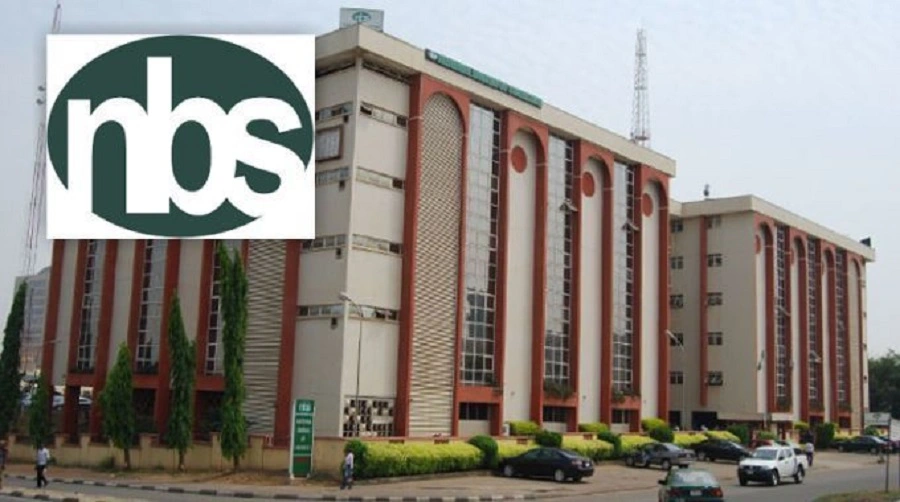by JOHNMARK UKOKO
National Bureau of Statistics (NBS) has reported that prices of foodstuff have continued to increase in the country as inflation rises by double digits. It explained that since 2016, the inflation rate, which has been sustained on double digit rose by 0.9 percentage points from 15.92 per cent in March, 2022.
NBS said it was a result of spill over from higher global prices of agricultural products on the heels of the Russia-Ukraine war, which may worsen inflation coupled with the continued slide of the Naira.
Nigeria’s double-digit inflation climbed to 16.82 per cent in April, rising for the third straight months, the statistics office said a readiness that could prompt a Central Bank of Nigeria (CBN) rate hike next week and further squeeze companies already struggling with high cost of running their businesses.
A Lagos-based Small and Medium Enterprise (SME) operator, John Okoroh, said in an interview with The Trumpet that the soaring cost of items in the market coupled with growing hardship in Nigeria has affected his once booming business, which has made him to cut down his workforce to lower the margins, as input costs has continued to soar since this year. He lamented that the overhead cost of small businesses was increasing daily and that assurances being given by the authorities have not changed anything.
Inflation, which has been in double digits since 2016 rose by 0.9 percentage points from 15.92 per cent in March as prices for foodstuffs and none food items rise in Africa’s biggest economy, the NBS said adding that Nigeria imports most goods and services, thereby putting much pressure on the Naira, which value continues to drop against other currencies.
The Federal Government has linked persistent inflationary pressure to structural deficits and not solely to money supply, having introduced various restrictions to cushion the effect of dollar shortage, which has put severe pressure on the Naira. The NBS explained that the rising prices of foodstuff and inflation constituted the major headline components as they increased by 1.17 percentage points in April to 18.37 per cent.
It said the inflationary trend could put pressure on the CBN to reconsider its dovish stance at a rates-setting meeting next week, adding that four of 10 rate-sellers in March voted to raise rates in order to curb inflation.
The NBS also reported that Nigeria’s Gross Domestic Product (GDP) increased by 3.98 per cent in the fourth quarter of 2021.
It stated this in its quarterly report releases in Abuja, which highlighted the status of GDP with regard to foreign trade, capital importation, consumer prices index and social statistics. According to the report, Nigeria’s GDP grew by 3.98 per cent year-on-year in real terms in the fourth quarter of 2021, which showed sustained growth for the fifth quarter since the recession of 2020 when output contracted by 6.10 per cent in Q2 and Q3 of 2020. Nevertheless, quarterly real GDP grew at 9.63 per cent in Q4 of 2021, reflecting a higher economic activity when compared to the previous year.
The report said real growth of the real sector was 8.06 per cent points and increased in Q4 of 2021 by 11.71 per cent points compared to the corresponding quarter of 2020. The report said growth increased by 2.68 per cent points when compared to the third quarter of 2021, translating to 10.73 per cent, adding that the non-oil sector grew by 4.73 per cent in real terms in Q4 of 2021.
Read Also: Covenant donates Hilux to police, navy in Ogun, Lagos
“The rate was higher by 3.05 per cent compared to the same quarter of 2020 and 0.71 per cent lower than Q3 of 2021,” it said, adding that the services sector recorded the highest year-on-year growth rate of 5.58 per cent in the fourth quarter of 2021, follow by agriculture with 3.58 per cent while industry had 0.05 per cent growth. On contribution to the total GDP, the NBS said agriculture contributed the most to the GDP with 26.84 per cent followed by trade with 15.66 per cent and Information and Communication Technology (ICT) with 15.21 per cent.
“Administrative and support services contributed the least with 0.02 per cent, followed by water supply, sewage management and remediation with 0.16 per cent and Arts, Entertainment and Recreation sector with 0.2 per cent,” the report added.






